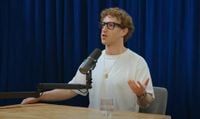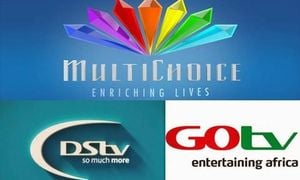Meta CEO Mark Zuckerberg has stirred controversy once again by announcing that the company will end its contentious fact-checking practices and lift restrictions on speech across its platforms, including Facebook and Instagram. This decision, made in January 2025, aims to "restore free expression" and comes amid criticism that current content moderation practices have "gone too far." The announcement has sparked swift backlash from various groups, who argue that a robust fact-checking system is necessary to prevent misinformation and extreme ideologies from spreading online.
During an appearance on Theo Von’s podcast, "This Past Weekend," Zuckerberg took the opportunity to address critics and the media, asserting that individuals online possess enough autonomy to make informed decisions about what to believe. He criticized what he termed "sensationalist" media coverage regarding social media's impact on society, suggesting that this narrative undermines people's ability to think for themselves.
"There’s a version of history that says that individual people are very powerful and have a lot of kind of autonomy and ability to kind of go in the direction that they think is right," Zuckerberg stated. He contrasted this with narratives that attempt to diminish personal autonomy, arguing that the media often misunderstands the lives of individuals, leading to a paternalistic view of the public.
Zuckerberg emphasized that when people express opinions that may seem incorrect, it is often due to a lack of understanding of their circumstances rather than misinformation. "If people are saying something that seems wrong, it's not usually misinformation, it's usually that you don't understand what's going on in that person's life," he explained. He believes that mainstream media narratives can sometimes reflect a certain arrogance, failing to grasp the complexities of individual experiences.
Moreover, Zuckerberg acknowledged a shift in the information landscape, suggesting that cultural and media elites are struggling to predict societal trends. He remarked, "Maybe some of those cultural or media elite people are having a harder time predicting what’s gonna happen in the world. Maybe there’s a little more humility of like ‘Maybe we don’t understand all this.'" This admission reflects a growing recognition of the limitations of traditional media perspectives in a rapidly changing digital environment.
In discussing the metrics for assessing the effectiveness of social media systems, Zuckerberg argued that the primary measure should be whether users find the platforms useful. He stated, "If you're building something that is useful for them, then they will use it," suggesting that platforms that fail to meet user needs will ultimately be abandoned in favor of better alternatives.
However, Zuckerberg warned against the dangers of making choices for users, cautioning that such an approach can lead to a decline in a company's relevance. He noted, "Whenever we adopt the attitude of, ‘Oh, we must know better than them because we’re the ones building technology,’ that’s when you lose." He stressed that maintaining a user-centric approach is crucial for the long-term success of any technology company.
Reiterating his belief in the intelligence of the general public, Zuckerberg concluded, "People are smart enough to make their own choices and ultimately drive the direction that society goes in." His comments reflect a broader philosophical stance that values individual agency over paternalistic narratives, which he believes can stifle innovation and personal freedom.
The backlash against Meta's decision to end fact-checking practices underscores the ongoing debate about the role of social media in shaping public discourse. Critics argue that without adequate oversight, platforms could become breeding grounds for misinformation, further polarizing society. Advocates for a more hands-off approach, however, contend that users should be trusted to discern the truth for themselves.
As Meta moves forward with its new policies, the implications for users and the broader social media landscape remain to be seen. Will this shift lead to a more liberated digital environment, or will it exacerbate the challenges of misinformation? Only time will tell how Zuckerberg's vision for social media will play out in practice.




